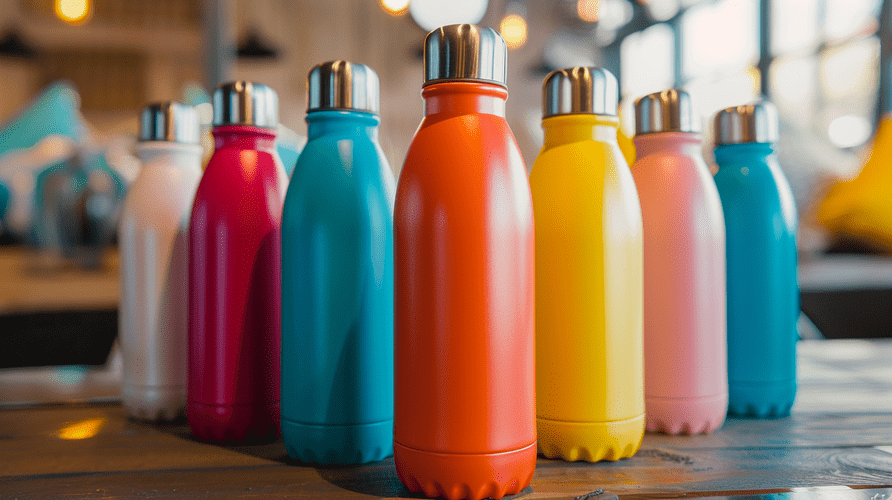People often worry about not drinking enough water. But drinking too much water can also be a problem. Understanding both risks helps us stay truly healthy.
Dehydration is common and causes fatigue, but overhydration, though rarer, can be acutely dangerous. It rapidly dilutes body sodium, leading to severe issues like confusion or seizures. Both need careful management for optimal health.

It's a common question I get, especially from clients who are very health-conscious about their own customers. They want to promote hydration, but responsibly. So, let's look closer at these two conditions. It's important to understand the nuances so we can make informed choices, and help others do the same.
What's worse, dehydration or overhydration?
It's confusing to know which is more dangerous. Both can harm your body in different ways. Knowing the specifics helps us understand the real dangers.
Overhydration can be more acutely dangerous due to rapid sodium dilution, potentially leading to severe brain issues. Dehydration, while more common and causing fatigue and organ stress, usually develops more slowly, giving more time to react.

When we talk about what's "worse," it depends on how quickly the problem develops and how severe the immediate impact is. I remember a story from a marathon event I supported with our Icobottle products years ago. An inexperienced runner, fearing dehydration, drank plain water excessively at every station. Towards the end, he became disoriented.
Understanding Dehydration
Dehydration is a very common issue. I see it all the time. People get tired, dizzy, and their kidneys can get stressed if it goes on for too long. It usually happens gradually. You feel thirsty, your mouth gets dry. These are warning signs. The body typically gives you signals to drink more. If you ignore these signs, especially during hot weather or intense exercise, dehydration can become serious. It can lead to heat exhaustion or heatstroke. For businesses, ensuring employees stay hydrated is crucial for productivity and safety. For my B2B clients, like procurement officers from large companies, this translates into understanding the need for accessible, quality water bottles for their staff or customers.
Understanding Overhydration (Hyponatremia)
Overhydration, or hyponatremia, is less common but can hit hard and fast. When you drink too much water too quickly, especially without enough electrolytes, your body's sodium levels plummet. This is serious because sodium balances fluids inside and outside cells. When sodium is too low, water rushes into cells, causing them to swell. This is especially dangerous for brain cells. It can lead to confusion, seizures, and in extreme cases, can be fatal. So, while dehydration is a widespread concern we address with our quality stainless steel water bottles, educating end-users about the acute risks of overhydration is also a key part of responsible business. For my B2B partners, this balanced knowledge builds significant trust and positions them as experts.
What happens when the body is overhydrated?
We always hear "drink more water." But what if you drink too much? Your body can actually face serious problems from having too much fluid.
When overhydrated, the extra water dilutes your blood's sodium levels. This condition, called hyponatremia, causes cells to swell, especially brain cells. This can lead to headaches, confusion, nausea, and severe neurological problems.

Overhydration fundamentally messes with your body's delicate electrolyte balance1. The key player here is sodium. It's crucial for maintaining blood pressure, nerve function, and fluid balance. When you consume excessive amounts of water, especially plain water without accompanying electrolytes (like during intense, prolonged exercise), you effectively dilute the sodium concentration in your bloodstream.
The Process of Hyponatremia
Here's a breakdown of what happens when you drink too much water too quickly:
- Dilution: Excess water enters your bloodstream faster than your kidneys can process it.
- Sodium Drop: The concentration of sodium (and other electrolytes) in your blood decreases significantly. This state is known as hyponatremia.
- Cellular Swelling: Your body tries to maintain equilibrium. To balance the sodium concentration inside and outside cells, water moves from the now low-sodium environment (blood) into the cells, causing them to swell up like balloons. This swelling is particularly dangerous in the brain because the skull is a rigid, bony box; there's no room for brain cells to expand without increasing pressure.
Symptoms of Overhydration
Symptoms can start mild and then progress if the overhydration isn't addressed:
- Early Symptoms: These can be vague and easily mistaken for other things. They include nausea and vomiting, a persistent headache, growing confusion or disorientation, and sometimes muscle weakness or cramps.
- Severe Symptoms: As the condition worsens and brain swelling increases, severe symptoms can develop rapidly. These include seizures, loss of consciousness leading to coma, and even respiratory arrest, which can be fatal.
I often explain to my clients, including startup bosses looking to build a health-conscious brand, that providing quality water bottles from Icobottle also comes with a responsibility to share this crucial knowledge. It shows we're not just selling a product, but are truly invested in promoting overall well-being and safe hydration practices. This adds value beyond the physical item.
How to fix overhydration immediately?
Realizing you've had too much water can be scary. What should you do right away? Acting quickly and correctly is very important for your safety.
To fix overhydration2, immediately stop drinking any fluids. For mild symptoms, rest and allow your body to excrete excess water. If symptoms are severe, like confusion or seizures, seek emergency medical help right away.

If you suspect you or someone else is overhydrated, the first and most crucial step is to stop all fluid intake immediately. This action prevents the situation from worsening. What happens next depends heavily on the severity of the symptoms.
Managing Mild Cases of Overhydration
If symptoms are mild – perhaps just slight nausea, a mild headache, or feeling a bit "off," and the person is alert and oriented – then stopping water intake and resting might be all that's needed. The body's kidneys will naturally work to excrete the excess water through urine over the next few hours. Some people find that a small salty snack, like a few crackers or a pretzel, can help if mild hyponatremia is suspected. This can provide a small amount of sodium. However, this isn't a substitute for medical advice if symptoms are concerning or don't improve. I had a client, Mark Shenng from Canada, who runs a distribution business. He once called me after a long day at a trade show in a very hot climate. He'd been diligently drinking plain water all day from one of our sample Icobottle stainless steel bottles to combat the heat but started feeling quite unwell and nauseous. I advised him to stop drinking immediately and try a salty pretzel he had in his bag. He reported feeling much better within the hour as his body started to rebalance.
Addressing Severe Cases of Overhydration
If symptoms are serious – such as a severe, throbbing headache, persistent vomiting, significant confusion or disorientation, extreme drowsiness, muscle twitching, or seizures – this is a medical emergency. You need to get professional medical help without any delay. Call your local emergency services immediately. In a hospital setting, treatment for severe hyponatremia3 is carefully managed and might involve:
- Intravenous (IV) fluids containing a controlled concentration of electrolytes, particularly sodium, to gradually and safely raise blood sodium levels.
- Medications to manage symptoms like seizures, nausea, or headaches.
- In some cases, diuretics might be used to help the body excrete excess water more quickly.
It's critically important not to try and "fix" severe hyponatremia too quickly or on your own, as very rapid changes in sodium levels can also be dangerous to the brain.
Prevention is Key
Ultimately, prevention, by understanding your individual fluid and electrolyte needs based on activity level, climate, and personal health, is always the best approach. This is something I emphasize when discussing product features like bottle capacity and insulation with my B2B clients; it's about providing the right tool and the right knowledge for safe and effective hydration.
Conclusion
Both dehydration and overhydration pose risks. The key is balanced hydration. Understand your body's needs for true health and safe use of hydration products.
-
Electrolyte balance is vital for health. This resource will help you understand its importance in hydration. ↩
-
Understanding overhydration is crucial for prevention and treatment. Explore this link for detailed insights and expert advice. ↩
-
Severe hyponatremia can be life-threatening. Learn about its causes, symptoms, and treatment options to stay informed and safe. ↩

